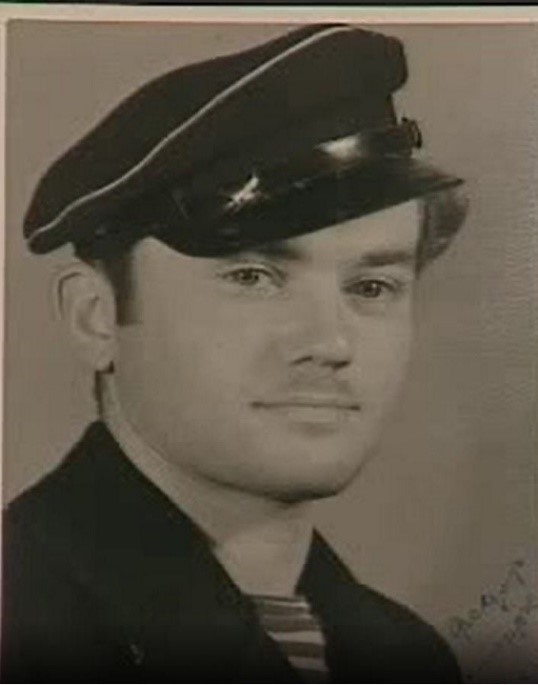Feliks Itskov was born in 1923 in the town of Klintsy, western Russia, near the Belorussian and Ukrainian border, in an assimilated and atheistic Jewish family. In 1924, the family moved to Leningrad (present-day St. Petersburg). Feliks' father David was a pharmacist, while his mother Fania was a teacher of music and languages. In his childhood, Feliks mastered German and became proficient in French and English. In 1939, he finished high school and enrolled in the Leningrad Shipbuilding Institute (technical university). In 1940, he moved to the F.E. Dzerzhinsky Naval Engineering High School.
On June 22, 1941, the Soviet-German War broke out, and on July 8 the school cadets were returned from the naval training camps to Leningrad. They were given the option to join the Special Naval Brigade that was being formed at this time. Itskov volunteered to enlist. On July 10, the brigade was deployed on the frontline near Narva (Estonia), with its men serving as marines. They were armed with old rifles, and lacked artillery support. The brigade was decimated, and it retreated to Kingisepp (Russia, south of St. Petersburg). The cadet Itskov was appointed commander of a group armed with grenade guns. In late August, his group had to cover the retreat of Itskov's company. There, the group was surrounded by the Germans, and its last six soldiers were taken prisoner. Itskov was wounded with explosive bullets, and later, in a POW camp near Pskov, a military surgeon (himself a POW) amputated his left arm.
Feliks Itskov was registered in the camp as Fiodor Tsukov, a Volksdeutsche (ethnic German), and this saved his life. Meanwhile, the Soviet underground in Pskov learned of the presence of a Volksdeutsche, who was fluent in German, in the camp. Using their liaison, they offered to extricate Feliks from the camp; in exchange, he would then work for the underground. Feliks agreed, and some women's committee in the town presented the camp administration with forged documents claiming that "Fiodor Tsukov" was the relative of an ethnic German resident of Pskov. On January 14, 1942, the Germans released Feliks, and he moved into the residence of his alleged relative, Aleksandra Nizovskaia (née Wolf). Zoya Solovyova, a liaison officer from the Soviet underground, came to Aleksandra's home and told Feliks that, although they could transfer him to a partisan unit, he could not serve as a partisan, being one-armed. However, as a German-speaker, he could help the Soviet intelligence.
Thus, Feliks found employment at the Luftbaubataillon, a construction company working for the German air force, and he became a valuable spy for the Red Army, and later also for the 3rd Leningrad Partisan Brigade. In 1943, he joined the Organization Todt as the head of the department for the Russian labor force. In January 1944, Feliks Itskov was arrested by the Gestapo, having been denounced by a captured partisan. Long interrogations followed, but Feliks denied all the charges against him. As a result, he was released. During the ongoing German retreat from Pskov, Itskov was able to join the 3rd Leningrad Partisan Brigade. With it, he arrived in Leningrad in March 1944. There, Itskov received his sole wartime decoration – the Order of the Patriotic War, 2nd class. His parents and sister survived the war in the Soviet interior.
In 1944, Feliks Itskov enrolled in the Faculty of Law of Leningrad State University. He worked as a legal adviser, and later as a lawyer, specializing in criminal cases. He briefly collaborated with the Jewish Anti-Fascist Committee, but after 1948 he severed his ties with this body.
The Pskov Historical Museum has a special stand dedicated to the wartime activities of "Fiodor Tsukov". Until recently, the museum failed to indicate that Feliks Itskov, who used the alias Fiodor Tsukov, was Jewish.







